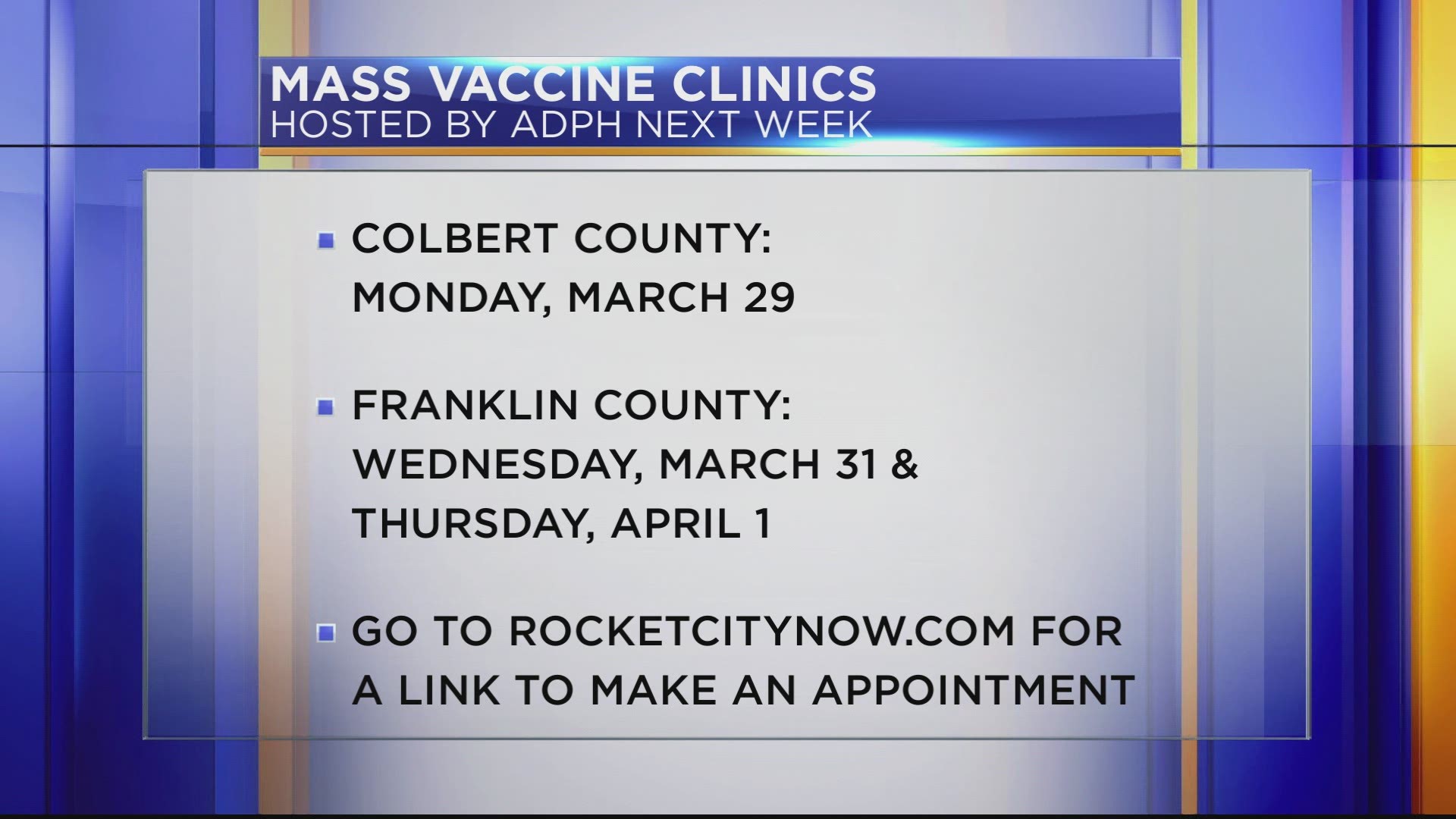COLBERT COUNTY, Ala. — Beginning March 27, the Alabama Department of Public Health (ADPH) will hold drive-through COVID-19 vaccination clinics in Colbert, Escambia, Franklin, Geneva, Jefferson, Montgomery and Walker counties for people who qualify for vaccine. There is no cost to receive a vaccine. For more information, go to www.alabamapublichealth.gov/covid19vaccine/mass-clinics.html
People currently eligible for vaccination are those who are 55 years old and older, people with intellectual and developmental disabilities and the population defined as Phases 1a, 1b and 1c in Alabama’s COVID-19 Vaccination Allocation Plan, alabamapublichealth.gov/covid19vaccine/assets/adph-covid19-vaccination-allocation-plan.pdf.
Please use the link below to download and complete the registration form, and then bring it with you on the day of the clinic to expedite the vaccination process.
https://www.alabamapublichealth.gov/covid19vaccine/assets/adph-pfizer-consent-form-imm66.pdf
Large clinics will be held in each of the state's public health districts.
Some of our most vulnerable and underserved communities are in rural Alabama. Several agencies, including one in Huntsville, is making sure no one gets left behind for COVID vaccinations.
At the campus of Alabama A & M University sits Carnegie Hall. Inside, is the North Alabama Area Health Education Center, which is part of the cause to make sure people in rural areas are getting vaccinated.
"The program office for that is here at UAB, but there are five separate centers that are stand alone operations," says Dr. William Curry, UAB Associate Dean for Primary Care and Rural Health.
Huntsville is one of those five locations. Alabama AHEC created a network last year of 'community partners from across the state by providing community-based training to teams involved with COVID-19 testing in rural and underserved Alabama". Now, it's vaccination.
"What we're trying to do is deliver it at the grassroots level, through people who will then help bring those people out of the margins in order to get vaccinated," says Curry.
The Alabama National Guard and the Alabama Department of Public Health have also teamed up to administer the vaccine in rural communities. Vaccine hesitancy has been a key issue.
"Hesitancy does not mean refusal. Hesitancy just needs people will need their questions answered so that they will be able to make informed decisions about their health," says ADPH Asst. State Health Officer, Dr. Karen Landers.
Doctors say the majority of those rural populations are black and minority groups, but they're starting to see the number of vaccinations pick up.
"Very small counties actually have quite high percentages in terms of the overall numbers of persons who received at least one COVID-19 vaccine," says Landers.

